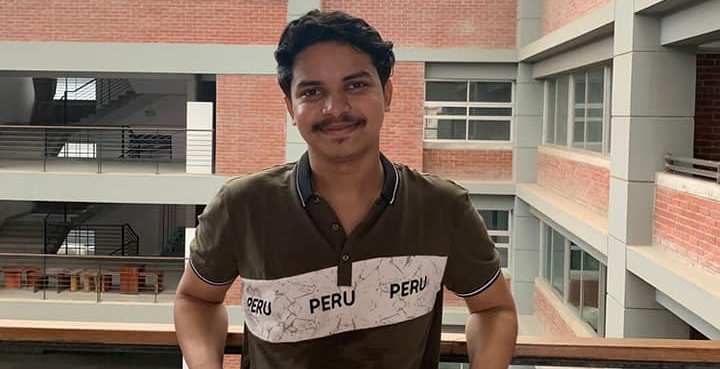Rights and liabilities of street children in Bangladesh Perspective

Md. Zonaid Patwary :
Those youngsters who have turned the road into their primary source of shelter and income and who are neither safeguarded or directed by a responsible adult are referred to as “street children.” The number of street children in Bangladesh is believed to be about 4 million.
It is possible that street children exist in Bangladesh for a variety of reasons. The life narrative of every single kid is different. Regional differences and individual differences exist in the reasons for which they are connected to highways. Some of these variables, such as poverty, natural disaster-induced relocation, and quarrels or family breakdowns, will vary over time, increasing the number of street children in a particular region. However, other variables are just as important as economic hardship in determining one’s level of well-being. There are a variety of societal variables that may contribute to parental death or neglect, as such as domestic violence or communal violence, as well as child abuse and neglect.
Rather of attending school, street children sell goods on the streets or engage in other activities. The reason for this is because their parents are unable to work or that their income is insufficient to meet their family’s basic needs. There are an estimated 600,000 street children residing in Bangladesh, with the majority of them concentrated in the city, Dhaka, where they account for 75% of the population. The lowest level of socioeconomic strata is represented by these youngsters in a nation that is rated 136th in the Human Development Index and in which half of the population is below the poverty line. Now that the country’s population has expanded, the projected number of street children has increased to more over 40,000,000, according to government estimates.
There is no place for street children to dwell or even sleep, so they cross the street and sell flowers. Many street children in Bangladesh die at a young age because they do not get the proper care and protection. Every year, 110,000 children die as a result of waterborne illnesses. Due to a lack of financial resources, street children in Bangladesh are often forced to consume unhealthy food that is harmful to their health. When they go out looking for food, they may get hungry as a result.
According to Article 17 of the Bangladeshi Constitution, all children, including disadvantaged children, have the right to an education. Children who live on the streets are also vulnerable to other forms of exploitation and are frequently the victims of sexual abuse, physical abuse, and human trafficking. It is stipulated in Article 15 (a) of the Bangladeshi constitution that the government is responsible for ensuring that all citizens’ basic needs, such as food, clothes and housing, as well as educational and medical services are provided. Street children, on the other hand, do not have access to these rights in a satisfactory manner. Street children have fundamental rights to education, health and nutrition, a balanced diet, protection, participation, leisure, sanitation, clean drinking water, and personal hygiene, among other things. This is a fundamental right denied to the vast majority of Bangladeshi youngsters.
In order to guarantee these rights for street children, the government should be urged to do so. Furthermore, according to Article 102 (1), if any citizen’s basic rights are not being respected or if someone abuses them, the government must intervene and remedy the situation. Our constitution’s articles 44 and 102 (1) provide citizens the right to petition the supreme court for the enforcement of their basic rights. Following our constitution’s articles 102 and 44, however, the supreme court is responsible for upholding these basic rights In order to protect the basic rights of street children, the government and law enforcement authorities must work together.This will prevent homeless children from going without essentials.In addition, private non-governmental organizations (NGOs) should step forward to protect the rights of street children.
The legislative budget must include funds to support street children, and a portion of the budget must be set aside for this purpose.It is necessary for civil society to create an educational institution for street children to provide them with an education comparable to that received by other children of privilege.In their own ways, the younger generation may assist street youngsters.
In order to alleviate pain and insecurity, voluntary groups may conduct seminars on the rights of street children.Voluntary groups may also set up an open school in the field or alongside the street to educate the youngsters on the street, if they so want.The Ministry of Education should consider enrolling street youngsters in school.In order to prevent crime from being planned by street youngsters, the government needs maintain vigilance.Those who work in the field of human rights must speak out in support of a quality of living for children on the streets.The rights of street children, such as education, medical treatment, shelter, food, and clothes, must be strictly enforced by governments and human rights groups to ensure that these rights are met.
If the rights of street children are adequately protected, they will be able to live happy and fulfilling lives in their communities. It is possible to educate and build a better future for street children in this country. If we can educate and build a better future for street children then crime will be reduced significantly. If street children are denied access to education, medical treatment, and adequate nutrition then they will become prey to various criminal activities in their quest for a better future. Despite the fact that street children are the country’s resources, the general public should not overlook their existence. The rights of these children should be protected by conscientious individuals and higher authorities so that they may live their lives as normal youngsters and contribute to the development of the nation.
Writer: Dept: of Law and human rights at The University of Asia Pacific.

